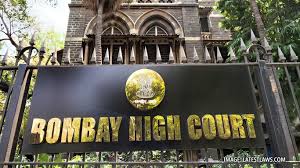Tomlin, J.@mdashCertain Cawnpore firms, in all or some of which Bisheshar Nath was a partner, drew during the years 1921 and 1922 a series of ten hundis upon a Calcutta firm of Motilal Bisheshar Nath. The partners in the firm of Motilal Bisheshar Nath were the appellant and Bisheshar Nath.
2. Of the ten hundis, eight were accepted in the name of Motilal Bisheshar Nath, by the munib Shambu Nath was the munib.-K.J.R. of the firm. The remaining two hundis were drawn by way of renewal of and in substitution for two of the eight accepted hundis, but were never accepted.
3. The eight hundis were discounted by one or other of the respondent banks, and all the hundis were dishonoured at maturity.
4. The banks in four suits sued Motilal Bisheshar Nath, and others on the hundis. All four suits were heard together.
5. Three of the suits related to the six accepted hundis in respect of which there were no renewal hundis given. On September 21, 1923, the Subordinate Judge at Cawnpore made decrees in these three suits for payment by Motilal Bisheshar Nath of the amounts of the six hundis. These decrees were affirmed by the High Court of Judicature at Allahabad on October 19, 1926.
6. The fourth suit related to the remaining two accepted hundis and the two unaccepted hundis intended to be substituted for them. This suit was dismissed on September 21, 1923, by the Subordinate Judge, as against Motilal Bisheshar Nath, on the ground that there was no acceptance by Motilal Bisheshar Nath of the substituted hundis, and that the plaintiffs'' right to sue Motilal Bisheshar Nath on the original hundis had been lost by the taking of the substituted hundis.
7. On appeal in the fourth suit, the High Court held that Motilal Bisheshar Nath was liable on the two original hundis.
8. Motilal has appealed to His Majesty in Council against the decisions of the High Court in all four suits.
9. Both Courts below held that all the hundis were drawn pursuant to a conspiracy to which the drawing firms, Bisheshar Nath and the munib of Motilal Bisheshar Nath were parties, having for its object the raising of money from the discounting banks in fraud of Motilal.
10. It is admitted that no consideration passed to the firm of Motilal Bisheshar Nath for accepting the hundis, and the Subordinate Judge held that the discounting banks had no notice of this fact or of the conspiracy. This finding was concurred in by the High Court.
11. The firm of Motilal Bisheshar Nath was a mercantile trading firm. The Subordinate Judges held that the munib of such a firm has, by custom, authority to accept hundis on the firm''s behalf. The High Court held that the munib was authorised, in fact, by Bisheshar Nath to accept the particular hundis in question as it was essential for the carrying out of the conspiracy that they should be so accepted,
12. The implied authority of a partner in a mercantile firm to draw and accept bills on behalf of the firm is well recognised. In the judgment of this Board, in Bunarsee Dass v. Gholam Hossein (1870) 13 M.I.A. 358, the principles affecting the matter were stated at p. 363, in the following terms :-
The proposition of law applicable to these facts is well known and indisputable. Every one of the partners in a mercantile firm of ordinary trading partnership is liable upon a Bill drawn by a Partner in the recognised trading name of the Firm, for a transaction incident to the business of the Firm, although his name do not appear upon the face of the instrument, and although he be a sleeping and secret Partner.
In order to take a case out of these principles of the general law, it must be shown that the holder of the Bill knew at the time he received it that the transaction was the private affair of a single Partner.
13. In their Lordships'' opinion the finding of the High Court that Bisheshar Nath in fact authorised the munib to accept the eight hundis in question was correct, and even if (which was not established) the implied authority of Bisheshar Nath to accept hundis had been expressly cancelled by Motilal, no attempt was made to prove that such cancellation was brought to the knowledge of the discounting banks. In these circumstances, their Lordships think that the discounting banks were entitled to recover against Motilal Bisheshar Nath upon the accepted hundis, subject in the case of two of those hundis to the question next to be considered as to the effect of the substitution therefore of the two unaccepted hundis.
14. In their Lordships'' judgment the High Court arrived at a right conclusion in holding that Motilal Bisheshar Nath was liable on the two accepted hundis for which unaccepted hundis were substituted. The substitution was conditional on the substituted hundis being accepted by Motilal Bisheshar Nath. They never were so accepted. The condition was therefore unfulfilled and the original hundis remained in full force as against Motilal Bisheshar Nath.
15. In the result, therefore, their Lordships are of opinion that these appeals fail and should be dismissed with costs, and they will humbly advise His Majesty accordingly.

